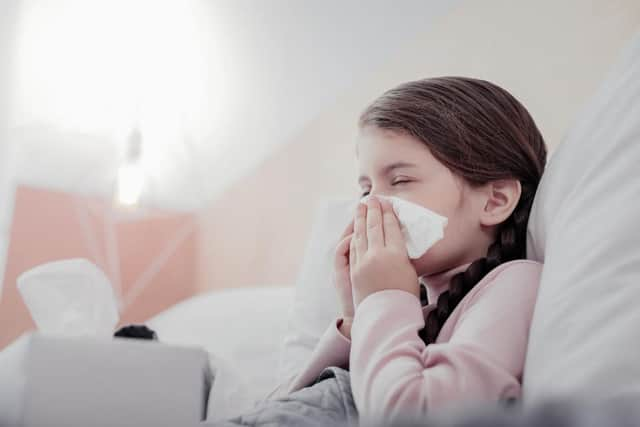Can I send my child to school with a cough? If kids need to stay home with a cough or sore throat - and Covid symptoms to look for
While the summer holidays are just around the corner for thousands of school pupils across the UK, and are already under way in Scotland, Covid-19 infections are still causing disruption to education.
Pupils are forced to miss time in school to quarantine if they are the contacts of confirmed coronavirus cases, which means children can be in and out of education frequently.
Advertisement
Hide AdAdvertisement
Hide AdIn England, ministers are now considerng scrapping the self-isolation requirement in autumn with the Department for Education writing to secondary schools asking them to prepare to potentially replace isolation rules with testing.


And with some coronavirus symptoms being similar to that of a cold, some pupils may take time off school for fear of passing any bugs to fellow classmates.
But what do rules say about staying off school for a cold? Here’s what you need to know.
Can my child go to school with a cold?
Parents have been advised to only take their children out of education if they are experiencing one of the three main symptoms of coronavirus.
These include:
- a high temperature
Advertisement
Hide AdAdvertisement
Hide Ad- a new, continuous cough – this means coughing a lot, for more than an hour, or three or more coughing episodes in 24 hours
- a loss or change to sense of smell or taste – this means they cannot smell or taste anything, or things smell or taste different to normal
Typical symptoms of a cold, such as a runny nose or a sore throat, are not considered symptoms of coronavirus, and as such, children do not need to be kept off school.
When should my child be tested?
Schools minister Nick Gibb has said that any pupil who is experiencing any of the three main symptoms of coronavirus should be sent home from school to be tested, but urged parents to ensure their children attend school in all other circumstances to ensure they are able to catch up on the lost education they have suffered during the lockdown period.
Advertisement
Hide AdAdvertisement
Hide AdHe said: “If a child is showing the symptoms of coronavirus then they will be asked to return home, to go home, and then the family asked to have a test.
“If that test proves positive, then the school will take advice from the local health protection teams and that will involve tracing all the children and adults that that child will have come across, and those people will then be asked to self-isolate.
“And then, if it is the advice of the local health protection team, a mobile testing unit will go into the school as well to test more young people.”
If a child has other cold-like symptoms, such as a runny nose, they do not need to be tested for coronavirus and will not be required to self-isolate. They can continue to attend school in this case should they feel well enough to do so.
Advertisement
Hide AdAdvertisement
Hide AdAs for the classmates of children who feel unwell, Prime Minister Boris Johnson said that groups of pupils should only be sent home if there has been a positive test, rather than someone just developing symtoms.
Mr Johnson stressed that “the reasons for sending such a class home, or a bubble home, would be if somebody tests positive”, with the plea coming after schools have been struggling to cope with a lack of coronavirus tests for pupils and staff.
Does the whole family need to be tested?
According to the government’s Track and Trace guidance, other family members in a household with a child who has suspected coronavirus do not need to have a test or self-isolate unless they are displaying symptoms.
However, it is advised that children should be kept separate from others in the household as much as possible, and no visitors should be allowed in the home.
Advertisement
Hide AdAdvertisement
Hide AdIn the event a child tests positive for coronavirus, everyone in the houshold must isolate for a period of 14 days.
The 14 day self-isolation period starts from the day when the first person in the household became ill or, if they do not have symptoms, from the day their test was taken.
If anyone else in the household starts displaying symptoms, they need to stay at home for at least 10 days from when their symptoms appear, regardless of what day they are on in their original 14 day isolation period.
